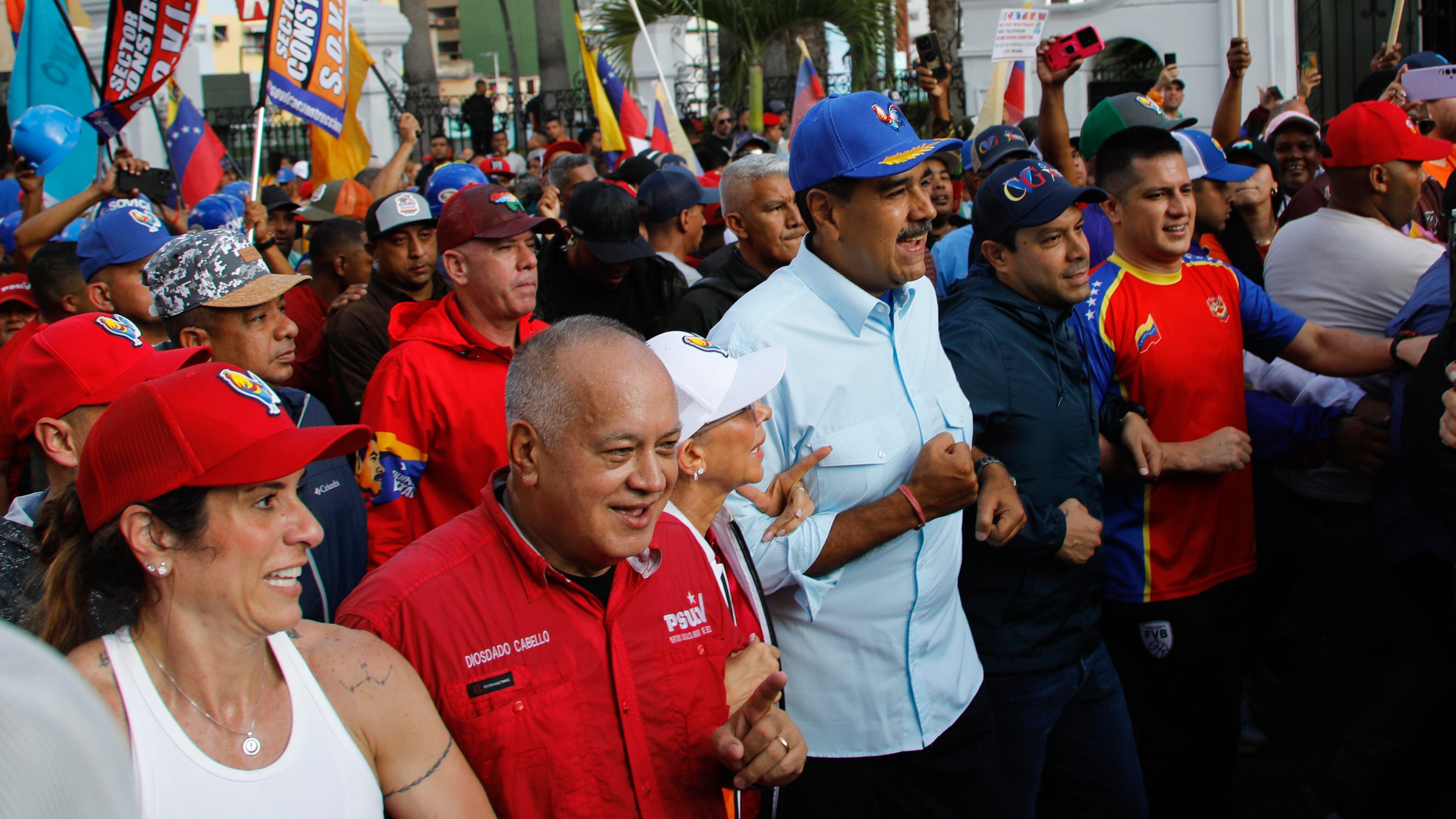CARACAS (AP) — Venezuelan President Nicolás Maduro announced changes to his cabinet on Tuesday, one month after the controversial presidential election, which was questioned by the opposition and the international community.
These changes raise fears of a tougher crackdown on protests, as the second-in-command of the ruling party, Diosdado Cabello, was appointed to the Ministry of Interior.
PUBLICIDAD
Cabello, the first vice president of the ruling United Socialist Party of Venezuela (PSUV), is considered the most powerful man in the country after the president and advocates for a more forceful pursuit of the opposition who have questioned and protested against the election results announced by the electoral authority that declared Maduro as president.
The president states that he won re-election by over a million votes and his government defied requests from the United States, the European Union, and even left-wing allies such as Brazil, Colombia, and Mexico to publish the voting records that support that claim.
Meanwhile, the opposition published on a website the count of 80% of the voting machines showing that their candidate, Edmundo González, won by a margin of more than 2 to 1.
At 61 years old, his influence in the government and security forces has increased in recent years as criticisms of the Venezuelan president's management of the country's economic and social difficulties have grown, but he had not held any position in the cabinet until now. This aspect fueled comments about his distance from Maduro.
Human rights groups, which have denounced repression in the protests that followed the elections on July 28 with 2,000 detainees —including journalists or opposition politicians—, fear that the appointment of Cabello as Minister of the Interior, in charge of the security forces, may strengthen the hardline approach against the opposition.
"If the new cabinet is an indicator of what Maduro intends to do, the appointment of Cabello is indicative that more repression is coming," pointed out Juanita Goebertus, Americas director for the organization Human Rights Watch, to The Associated Press.
The Inter-American Commission on Human Rights plans to release a report on Wednesday from Washington about the deterioration of the situation in Venezuela during a meeting of the Organization of American States.
In addition to the arrests of protesters, the Venezuelan justice system has called on the opposition's former presidential candidate to testify in a criminal investigation for allegedly attempting to sow panic in this South American country by challenging the election results.
Last week, the Supreme Court of Justice certified the results of the electoral body - aligned with the ruling party - dismissing as false the vote counts published by the opposition.
Maduro announced a cabinet reshuffle aiming to "assemble a new team" of ministers in order to "accelerate and deepen the changes that the people need," stated the president during a meeting with representatives of local community organizations known as communes and communal councils, which are mostly part of the PSUV's base.
Among the new appointments, the appointment of Vice President Delcy Rodríguez stands out, a close collaborator of Maduro who will maintain that position, as the new Minister of Petroleum.
Rodríguez replaces Pedro Tellechea, who in January 2023 was appointed president of the state corporation Petróleos de Venezuela S.A. (PDVSA) and just two months later also took on the position of Minister of Oil after the resignation of Tareck El Aissami, amid a broad anti-corruption investigation that led to his arrest.
The ruler, for his part, appointed Hector Obregón as the new head of PDVSA, who had been serving as the vice president of the oil company.
Despite having the largest oil reserves in the world, Venezuela has been experiencing a drastic decline in its production for more than half a decade, resulting in fuel and domestic gas shortages.
Government critics attribute the collapse of the oil industry to mismanagement and corruption in PDVSA under the administration of Maduro and his predecessor and mentor, the now deceased president Hugo Chávez (1999-2013).
On the other hand, Maduro ratified 12 ministers in their positions. Among them, Foreign Minister Yvan Gil and Defense Minister, Chief General Vladimir Padrino López, who has held the position since 2014 and is considered a key figure in the military's support for the socialist president.
Padrino López, 61 years old, is one of the ministers who has been part of Maduro's cabinet for the longest time. Maduro assumed the presidency in 2013. He is also one of the longest-serving ministers in the history of the country. He took office on October 24, 2014.
The military is one of Maduro's main supports. The opponents of the president have repeatedly failed in their attempts to gain the support of the armed forces to force Maduro to step down from power.
In the government restructuring, the heads of portfolios in the productive and labor sector such as Agriculture and Land, Finance and Foreign Trade, Education, and Labor were also replaced. - AP journalist Joshua Goodman contributed to this dispatch from Miami.
